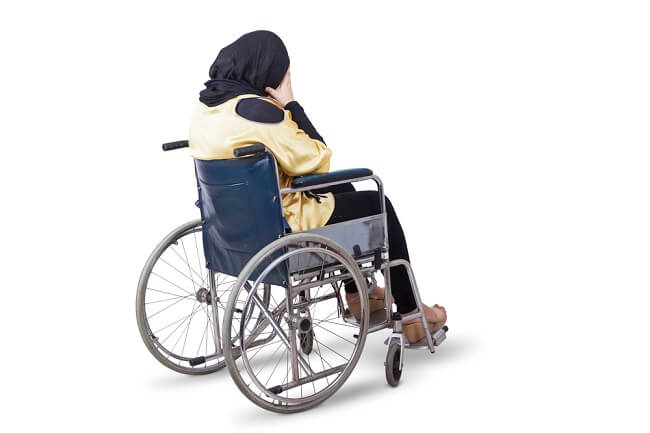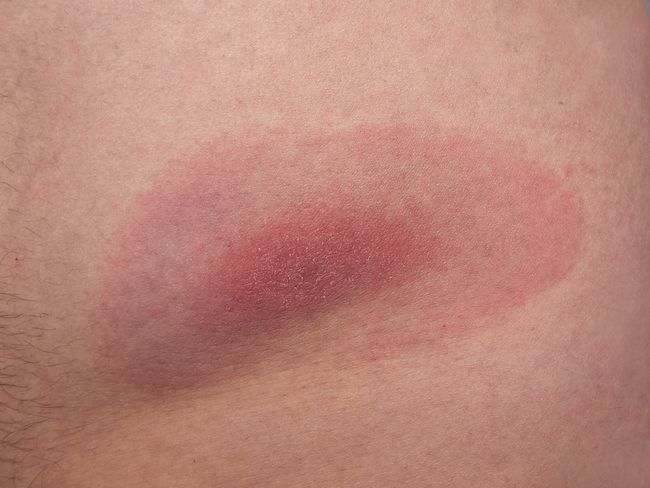Babies who are teething will usually feel itchy or sore gums. This complaint will make him uncomfortable and eventually become cranky. To relieve pain when your baby is teething, there are several ways you can do it at home.
While still in the womb, teeth have actually started to form in the gums. However, with time and age, babies will go through a teething process, which is the process when teeth gradually grow and begin to penetrate the gums.

Teething Process and Complaints That Often Accompany It
The teething phase in infants usually occurs at the age of 6-12 months. However, there are some babies whose teeth grow faster, which is around the age of 3 months. In fact, baby teeth may already grow at birth, although this is quite rare.
Generally, baby teeth grow sequentially, starting with the two middle teeth in the lower jaw, then the two middle teeth in the upper jaw. After that, one by one the teeth grow on the sides and back of the mouth.
The last teeth to appear are the second molars, which are located at the back of the mouth on the upper and lower jaws. These molars usually start to grow when a child is 3 years old. After that, the child has a complete set of teeth consisting of 20 baby teeth.
When teething, babies often feel uncomfortable and are usually indicated by the following signs:
- Often puts hands in mouth and likes to bite objects around him, such as biting fingers and toys.
- Often cries and fusses.
- Difficulty eating and sleeping.
- Baby's gums look swollen and red.
- Drooling a lot or pee, which then triggers a rash around the mouth and face.
- Likes to tug at the ears and scratch the cheeks.
Every baby may show different teething symptoms. Sometimes, there are also babies who do not experience any symptoms or seem calm when their teeth are about to grow.
Tips for Overcoming Complaints that Appear when Baby is Teething
When your little one is fussy or cries a lot because of teething, you can try the following tips to ease the pain your little one feels:
PGently massage baby's gums
The trick is to rub or massage the baby's teething gums gently and slowly for a few minutes. Before massaging your little one's gums, make sure you wash your hands thoroughly first.
Apart from using your fingers, you can also massage your little one's gums with a soft and clean cloth that has been moistened with water.
Give your little one a special toy that is safe to bite
When teething, your little one will be fond of biting something to reduce the itching and discomfort that appears in his gums. As a solution, you can use teether or a special toy to bite into.
chill teether in the refrigerator before giving it to your little one. The cold can reduce swelling and discomfort in the gums. Avoid putting the biting toy into the freezerBecause frozen toys that are too hard can hurt your little one's gums.
Give me a cold snack
To relieve discomfort, Mother can provide healthy snacks that are cold and comfortable for the Little One to chew. For example, yogurt or finger food, such as carrots and bananas that have been pre-cooled in the refrigerator.
In addition, Mother can also give the Little One cold water using sippy cup, namely a plastic cup with a lid equipped with a spout.
Giving finger food and cold yogurt using sippy cup This is only for babies over 6 months old, who can already eat solid food. Some doctors may also suggest that yogurt be given when the baby is 9 months old.
To prevent the baby from choking, always accompany the Little One while eating these foods.
Give breast milk or infant formula regularly
When teething, babies usually respond differently. There are those who want to breastfeed more often or there are those who stop breastfeeding because their teeth hurt when sucking the nipple.
However, mothers are still advised to give their little one exclusive breastfeeding even though he is reluctant to breastfeed. If your baby likes to bite the nipple, try massaging the gums first with your clean, dipped finger in cold water. Massage on the baby's gums is also done after breastfeeding.
If your condition does not allow you to give breast milk, you can use formula milk with good content for baby's growth and development.
Consult a pediatrician to find out the right type of formula according to your little one's condition and age.
Give pain relievers with doctor's advice
Giving tooth pain relievers for babies who are teething should be done on the advice of a doctor. This is because pain relievers, such as gels and creams containing benzocaine, can cause a dangerous condition called methemoglobinemia.
Although this side effect is very rare, methemoglobinemia can cause the amount of oxygen in your little one's body to decrease drastically, causing symptoms of shortness of breath, dizziness, paleness, and weakness.
If needed, the doctor can give pain relievers, such as paracetamol for babies less than 3 months old and ibuprofen for babies less than 6 months old. Make sure you give it according to the dose recommended by your doctor.
The symptoms your little one feels when teething will usually disappear within a few days or a few weeks.
However, if you find your little one also feels other symptoms, such as high fever, diarrhea, vomiting, or weakness, you should immediately take your little one to the pediatrician to get the right treatment.









